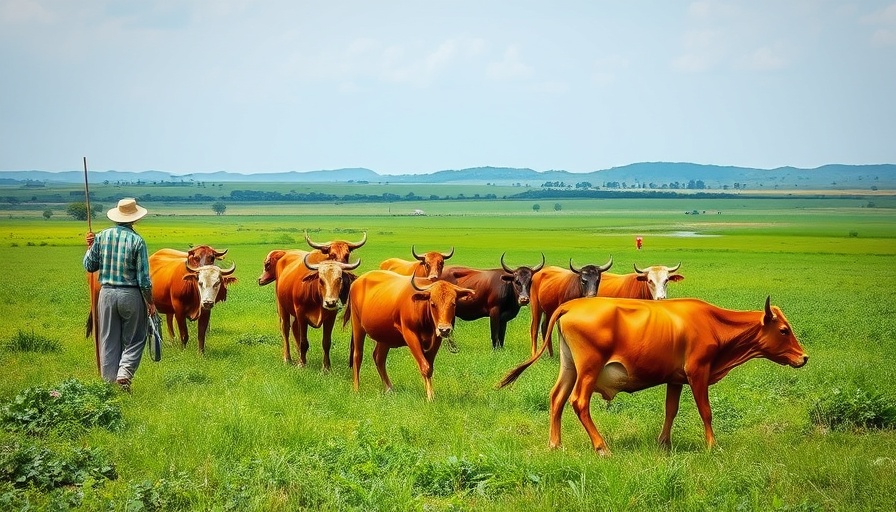
Empowering Nigeria’s Grazing Reserves: A Solar Revolution
In an important stride towards sustainable development, Nigeria is set to revolutionize its grazing reserves by harnessing solar power, an innovative initiative unveiled by Ed Muktameha, the Minister of Livestock Development. The signing of a memorandum of understanding (MOU) between the ministry and the rural electrification agency marks a transformative moment for the 417 grazing reserves across the country. These areas have not only been crucial for livestock production but are also pivotal in addressing broader socio-economic challenges.
In 'Nigeria to Solarise Grazing Reserves', the discussion dives into an innovative approach to improving agricultural productivity and community welfare through renewable energy.
The Significance of Solar Power in Livestock Development
The introduction of solar grids into these grazing reserves is more than just an energy initiative—it represents a beacon of hope for millions of pastoralists in Nigeria. By rehabilitating and resettling grazing areas, this initiative aims to restore peace in the countryside, proving that clean and renewable energy can significantly improve agricultural productivity. This venture aims to provide a year-round water source for livestock through enhanced irrigation systems, ensuring that quality herds can thrive.
Transformative Impacts on Communities
The implementation of solar power stands to create multifaceted benefits for local communities. With clean energy access, residents can expect improved security, better educational opportunities, and enhanced health care services. This shift towards renewable energy fosters an environment conducive to economic growth by generating jobs in solar system installation and maintenance, thereby stimulating local economies significantly.
Food Security and Economic Opportunities
Food security is a pressing issue in Nigeria, and this initiative aligns directly with national goals of enhancing agricultural efficiency. With the environmental and economic stability that comes from solar power, Nigeria's efforts in food security could see new heights. The presence of solar grids creates a ripple effect, fostering job creation throughout the supply chain and revitalizing local markets that were previously stagnant.
Fostering Education and Community Safety
The integration of solar energy into grazing reserves is poised to uplift educational access in rural areas, where schools often depend on unreliable power sources. By providing a stable and renewable energy supply, children can benefit from extended learning hours, enriching their educational experience. Additionally, improved community lighting contributes to greater safety, addressing concerns that have historically plagued these regions.
An Investment in a Bright Future
As Nigeria embarks on this ambitious journey towards electrifying its grazing reserves, it sets a precedent not only within the African continent but globally. This initiative promises a brighter future identified clearly by power as an enabler of peace and prosperity. Muktameha emphasizes that these efforts extend beyond agricultural advancements—they are about uplifting communities and ensuring that every, underserved region has the electricity needed to thrive.
By integrating renewable energy solutions into pastoral practices, Nigeria stands at the cusp of a green revolution that can inspire similar initiatives across Africa. Investing in such transformative steps is not just an agenda for sustainability; it is a commitment to fostering agricultural resilience, enhancing quality of life, and paving the way for future infrastructures.
 Add Row
Add Row  Add
Add 


Write A Comment